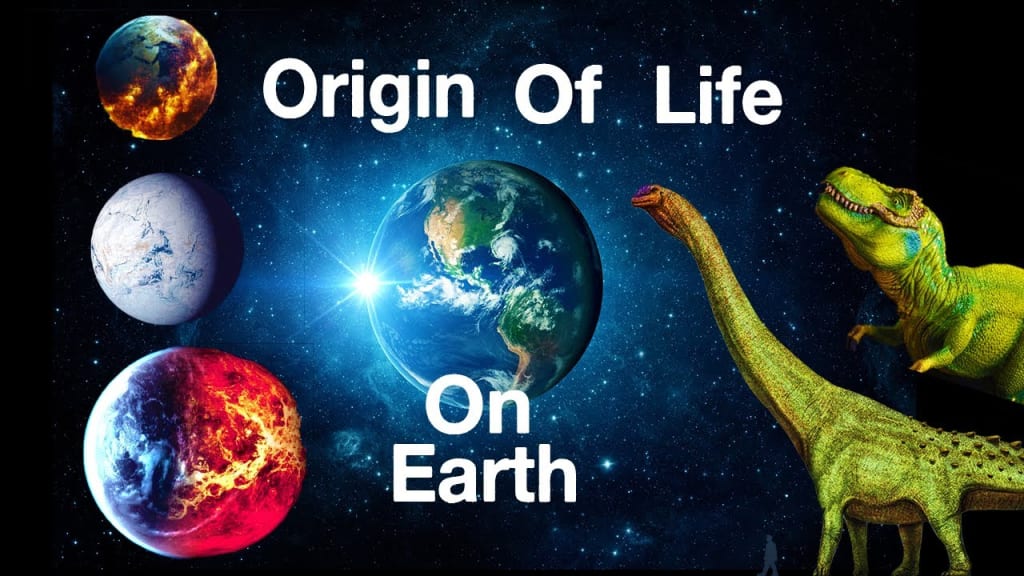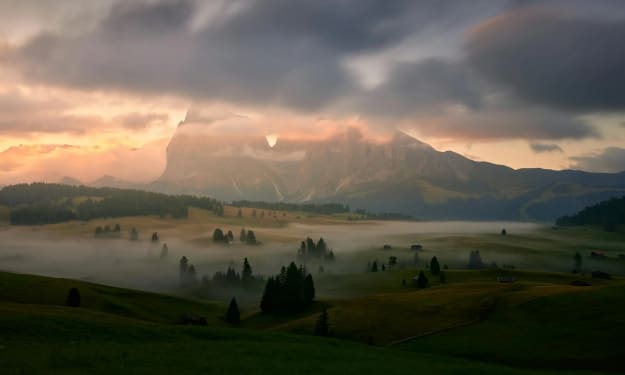
Introduction
Life is a fascinating phenomenon, but its origins have long puzzled scientists and philosophers alike. How did life arise from non-living matter? What were the conditions necessary for its emergence? In this article, we will explore the scientific theories and hypotheses that shed light on the origin of life.
The Origins of Life: Scientific Theories and Hypotheses
Abiogenesis: Life Arising from Non-Living Matter
One prevailing hypothesis suggests that life originated on Earth through a process called abiogenesis. According to this theory, simple organic compounds present on early Earth underwent a series of chemical reactions, eventually leading to the formation of complex molecules and, ultimately, life itself.
The Miller-Urey Experiment and Primordial Soup Theory
In the 1950s, Stanley Miller and Harold Urey conducted a groundbreaking experiment that demonstrated the possibility of synthesizing organic compounds, such as amino acids, under conditions resembling the early Earth's atmosphere. This experiment supported the idea of a "primordial soup" rich in organic molecules as a crucial step in the origin of life.
Deep-Sea Vent Theory
Another hypothesis proposes that life may have originated near hydrothermal vents on the ocean floor. These vents release a variety of minerals and compounds, providing a suitable environment for the formation of complex organic molecules. The extreme conditions and chemical gradients found around deep-sea vents could have facilitated the emergence of life.
Panspermia: Life Seeding from Outer Space
The concept of panspermia suggests that life on Earth may have originated from extraterrestrial sources. This theory proposes that microorganisms or their building blocks could have traveled through space, hitchhiking on comets, meteoroids, or even interstellar dust, and seeded life on Earth.
Directed Panspermia
Directed panspermia postulates that life may have been intentionally sent to Earth by an advanced extraterrestrial civilization. This intriguing hypothesis raises questions about the possibility of life's deliberate seeding across the cosmos.
Lithopanspermia
Lithopanspermia, on the other hand, proposes that life's building blocks, such as bacteria or spores, could have survived long journeys through space and been transported within rocks or debris. Upon impacting a suitable planet like Earth, these organisms could have potentially survived and initiated the development of life.
The Role of Organic Molecules
Regardless of whether life originated on Earth or was brought from outer space, organic molecules play a crucial role in its emergence. Amino acids and nucleotides, often referred to as the building blocks of life, are essential components for the formation of proteins and genetic material.
RNA World Hypothesis
The RNA World Hypothesis proposes that early life forms relied on RNA (ribonucleic acid) rather than DNA (deoxyribonucleic acid) as the primary genetic material. RNA has the ability to store genetic information and catalyze chemical reactions, suggesting it could have played a central role in the early stages of life's evolution.
Conditions for Life to Emerge
For life to emerge, certain conditions need to be met. The presence of liquid water is considered vital, as it provides a medium for chemical reactions to occur. Additionally, the temperature should be within a range that allows for the stability of organic molecules and the existence of metabolic processes.
Energy Sources and Chemical Reactions
Energy sources, such as sunlight or chemical gradients, are essential for driving the chemical reactions necessary for life. These energy sources provide the fuel needed to power cellular processes and sustain life's metabolic activities.
The Early Earth: A Crucible for Life
The early Earth was a dynamic and evolving planet that provided the necessary conditions for life to arise. The atmosphere of the primordial Earth was composed mainly of nitrogen, carbon dioxide, methane, and water vapor. Volcanic activity and lightning storms could have contributed to the synthesis of organic compounds.
Formation of Complex Organic Compounds
Over time, complex organic compounds formed through various chemical reactions. These compounds included amino acids, nucleotides, sugars, and lipids, which are the fundamental building blocks of life as we know it.
The Evolution of Life
Once life emerged, it underwent a process of evolution and diversification. Early microbial life forms, such as bacteria and archaea, populated the planet. These prokaryotic organisms laid the foundation for the development of more complex life forms.
Origin of Eukaryotes
Eukaryotes, which encompass all multicellular organisms, including plants, animals, and fungi, evolved from prokaryotes through a process known as endosymbiosis. This theory suggests that certain prokaryotic cells engulfed other cells, forming a symbiotic relationship and eventually giving rise to complex eukaryotic cells.
The Cambrian Explosion: Diversification of Life
One of the most significant events in the history of life on Earth is the Cambrian Explosion, which occurred approximately 541 million years ago. During the unification of life forms, marking the rapid emergence of complex organisms with diverse body plans and specialized organs. This explosion of biodiversity set the stage for the development of the vast array of life forms that exist today.
Conclusion
The question of where life came from remains one of science's greatest mysteries. Scientific theories and hypotheses provide compelling insights into the origin of life, whether through abiogenesis on Earth or the possibility of life being seeded from outer space. The role of organic molecules, the conditions necessary for life to emerge, and the evolutionary processes that shaped life's development all contribute to our understanding of this fascinating topic. While scientists continue to explore and investigate the origins of life, it is clear that the emergence of life was a complex and intricate process that took place over billions of years. From the formation of simple organic compounds to the evolution of complex organisms, life's story is a remarkable testament to the wonders of the natural world.
About the Creator
Void
Hi there! I'm a writer who loves exploring the intersection of fact and fiction through storytelling. Join me on my literary journey as I delve into the depths of the human experience and bring new worlds to life.






Comments
There are no comments for this story
Be the first to respond and start the conversation.